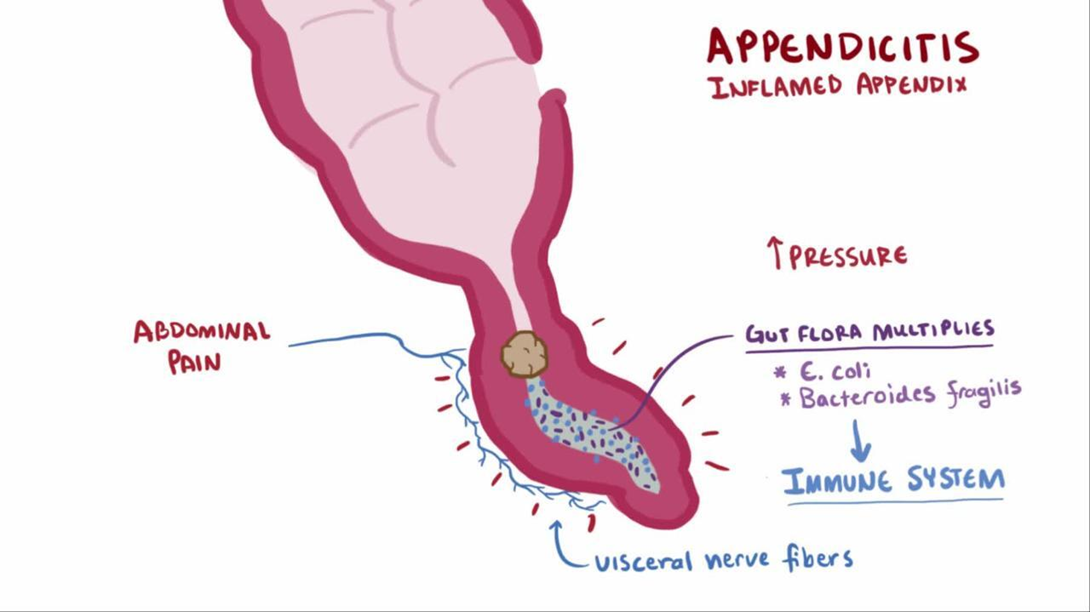While completing a health assessment for a young adult female with acute appendicitis, the client informs the nurse that there is a chance that she may be pregnant. The operating team is preparing to take the client to surgery. Which intervention should the nurse implement immediately?
Perform a bedside pregnancy test.
Continue with surgery as scheduled.
Calculate gestation from last menstrual cycle.
Notify the surgical team to cancel the surgery.
The Correct Answer is A
Choice A reason: This is correct because performing a bedside pregnancy test is the intervention that should be implemented immediately by the nurse. This is to confirm or rule out pregnancy and inform the surgical team of any possible risks or complications that may affect the client or the fetus.

Choice B reason: This is incorrect because continuing with surgery as scheduled is not an appropriate intervention without verifying the pregnancy status of the client. Surgery may pose serious threats to both maternal and fetal health, such as bleeding, infection, anesthesia complications, or miscarriage.
Choice C reason: This is incorrect because calculating gestation from last menstrual cycle is not an accurate or reliable method of determining pregnancy. The menstrual cycle can vary widely among women and may be affected by various factors such as stress, illness, or medication.
Choice D reason: This is incorrect because notifying the surgical team to cancel the surgery is not a necessary intervention unless pregnancy is confirmed. Appendicitis is a medical emergency that requires prompt surgical treatment to prevent rupture, peritonitis, or sepsis.
Nursing Test Bank
Naxlex Comprehensive Predictor Exams
Related Questions
Correct Answer is C
Explanation
Choice A reason: Potassium 4.7 mEq/L (4.70 mmol/L) is within the normal reference range of 3.5 to 5 mEq/L (3.5 to 5 mmol/L). Potassium is an electrolyte that helps regulate the balance of fluids and acids in the body, as well as the function of nerves and muscles. A high potassium level (hyperkalemia) can cause muscle weakness, irregular heartbeat, and cardiac arrest. A low potassium level (hypokalemia) can cause muscle cramps, fatigue, and arrhythmias.
Choice B reason: Magnesium 2.1 mEq/L (0.86 mmol/L) is within the normal reference range of 1.3 to 2.1 mEq/L (0.65 to 1.05 mmol/L). Magnesium is an electrolyte that helps regulate the activity of enzymes, muscles, and nerves, as well as the balance of calcium and potassium in the body. A high magnesium level (hypermagnesemia) can cause nausea, vomiting, flushing, muscle weakness, and respiratory depression. A low magnesium level (hypomagnesemia) can cause muscle twitching, tremors, seizures, and cardiac arrhythmias.
Choice C reason: Calcium 6.5 mg/dL (1.63 mmol/L) is below the normal reference range of 9 to 10.5 mg/dL (2.3 to 2.6 mmol/L). Calcium is an electrolyte that helps regulate the function of muscles, nerves, bones, and blood clotting. A high calcium level (hypercalcemia) can cause nausea, vomiting, constipation, confusion, kidney stones, and bone pain. A low calcium level (hypocalcemia) can cause muscle spasms, cramps, tingling, numbness, and stridor (a high-pitched sound when breathing). **This is a critical value that should be immediately reported to the healthcare provider**, as it can indicate a serious condition such as acute pancreatitis, sepsis, or massive blood transfusion.
Choice D reason: Sodium 135 mEq/L (135 mmol/L) is slightly below the normal reference range of 136 to 145 mEq/L (136 to 145 mmol/L). Sodium is an electrolyte that helps regulate the balance of fluids and acids in the body, as well as the function of nerves and muscles. A high sodium level (hypernatremia) can cause thirst, dry mouth, confusion, seizures, and coma. A low sodium level (hyponatremia) can cause headache, nausea, vomiting, fatigue, muscle weakness, and confusion.
Correct Answer is B
Explanation
Choice A reason: The humoral immune response is mediated by B cells that produce antibodies against specific antigens. However, this response is not the main problem in AIDS, because B cells are not directly affected by the human immunodeficiency virus (HIV) that causes AIDS. Therefore, this choice is incorrect.
Choice B reason: The cellular immune response is mediated by T lymphocytes that activate other immune cells, such as macrophages, to destroy infected or abnormal cells. This response is the main problem in AIDS, because HIV infects and destroys CD4+ T cells, which are essential for coordinating the cellular immunity. As a result, the client becomes susceptible to opportunistic infections, such as Pneumocystis jiroveci pneumonia. Therefore, this choice is correct.
Choice C reason: Bone marrow suppression of white blood cells can cause immunodeficiency, but it is not the primary cause of AIDS. Bone marrow suppression can occur as a side effect of some drugs or treatments, such as chemotherapy or radiation therapy, but it is not directly caused by HIV. Therefore, this choice is incorrect.
Choice D reason: Exposure to multiple environmental infectious agents can challenge the immune system, but it does not necessarily cause it to fail. The immune system can adapt and respond to different pathogens, unless it is compromised by an underlying condition, such as AIDS. Therefore, this choice is incorrect.
Whether you are a student looking to ace your exams or a practicing nurse seeking to enhance your expertise , our nursing education contents will empower you with the confidence and competence to make a difference in the lives of patients and become a respected leader in the healthcare field.
Visit Naxlex, invest in your future and unlock endless possibilities with our unparalleled nursing education contents today
Report Wrong Answer on the Current Question
Do you disagree with the answer? If yes, what is your expected answer? Explain.
Kindly be descriptive with the issue you are facing.
